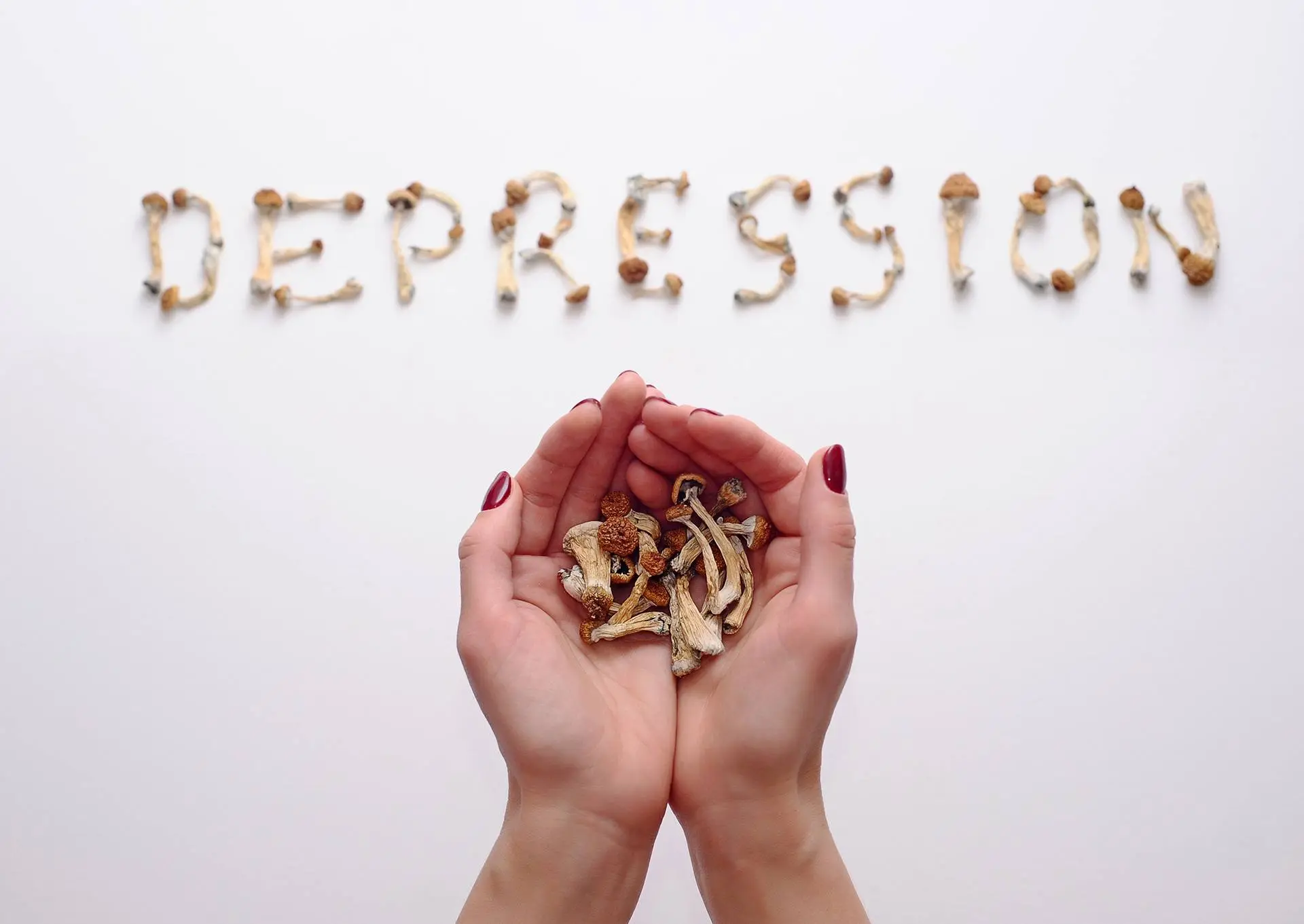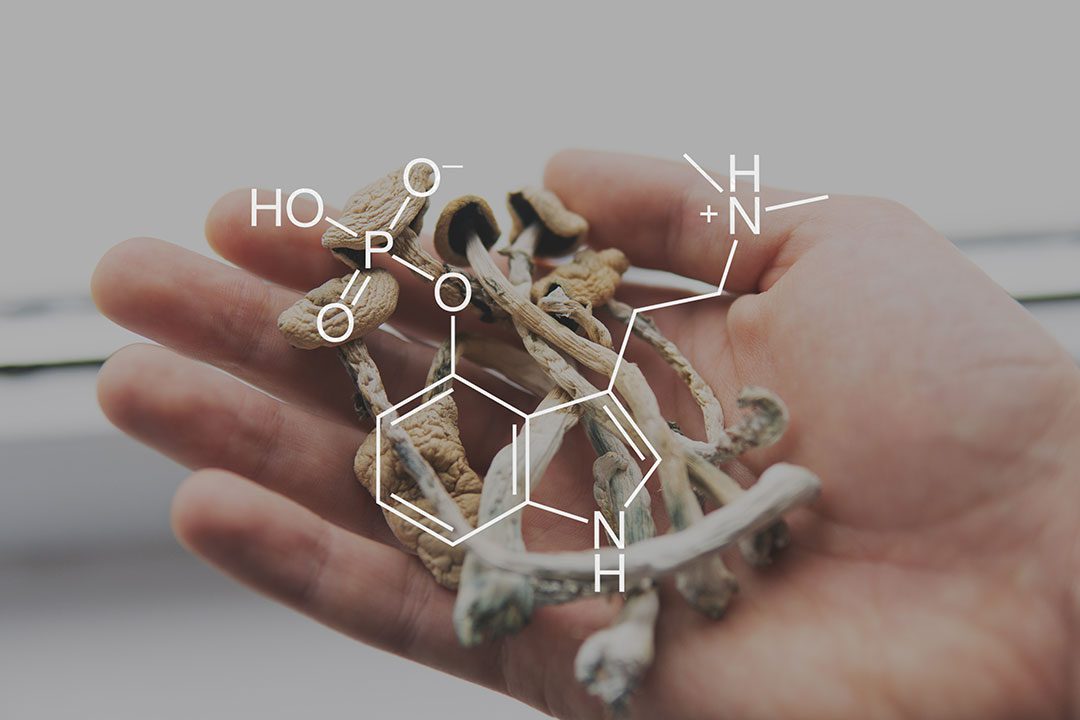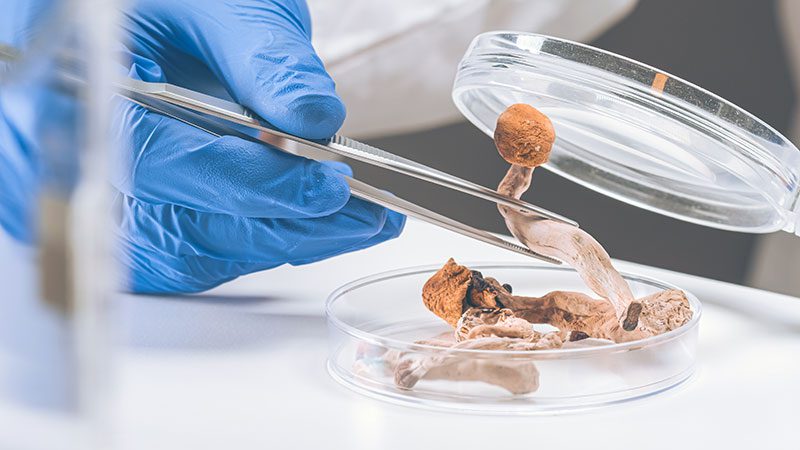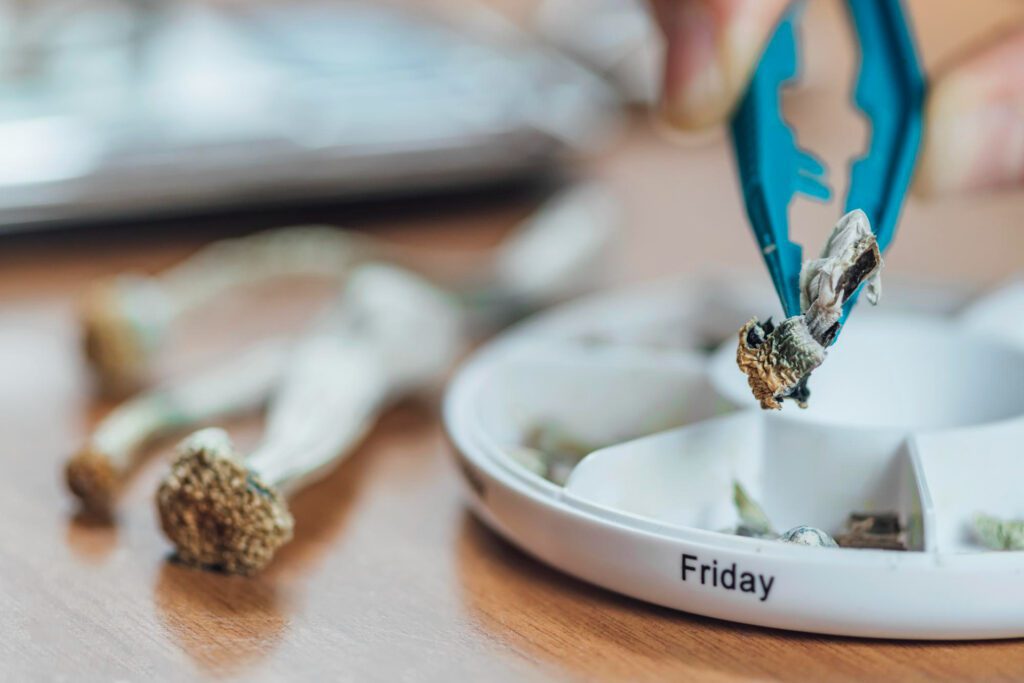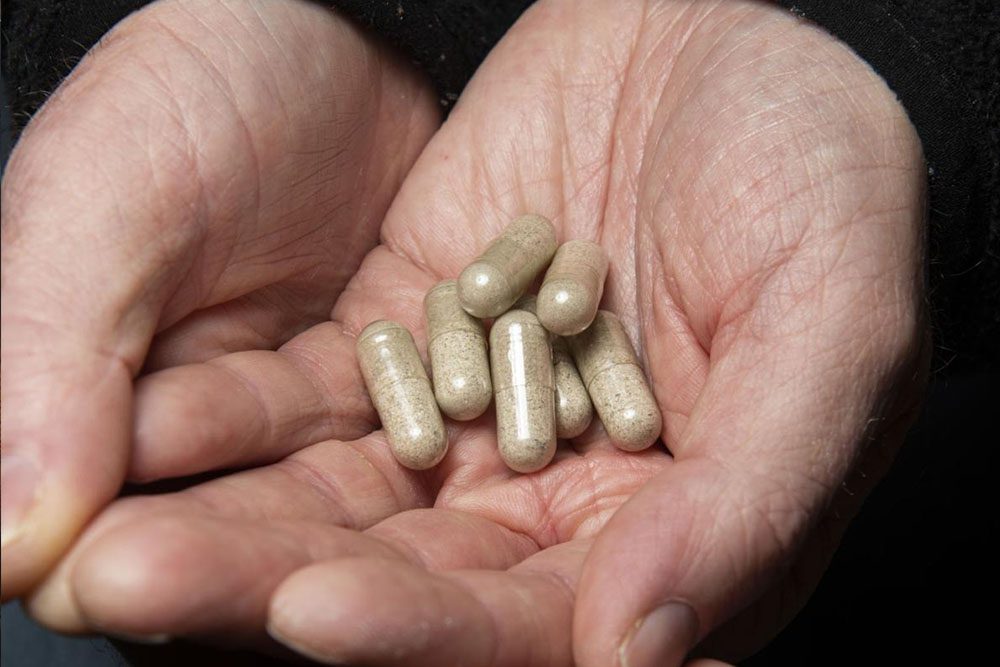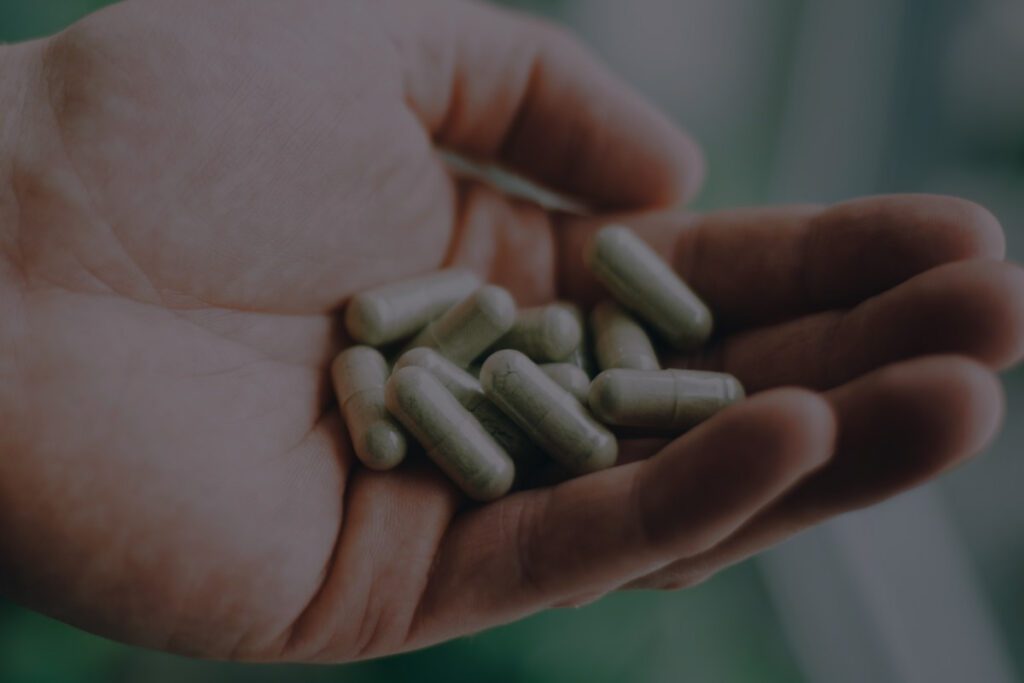Introduction to Microdosing for Depression
In recent years, microdosing has emerged as an alternative approach to mental health and well-being. This practice, which involves consuming small, sub-perceptual doses of psychedelics like psilocybin mushrooms, has been linked to a range of potential benefits, from enhanced creativity and focus to improved mood and reduced anxiety.
While scientific understanding of microdosing is still developing, early research and anecdotal evidence point towards its potential as a complementary therapy for depression and other mental health disorders.
In this article, we will delve into the world of microdosing, exploring its potential applications, risks, and future developments in mental health treatment.
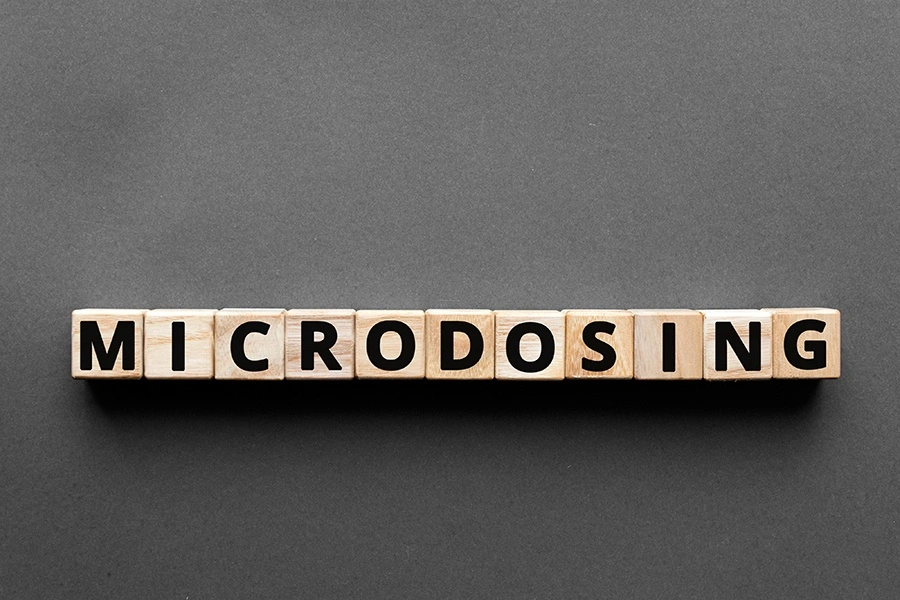
Understanding Microdosing
Microdosing is the practice of consuming a sub-perceptual amount of a psychedelic substance, typically around 1/10th to 1/20th of a recreational dose. The idea is to experience subtle, yet potentially beneficial effects without the intense sensory and cognitive changes associated with a full dose.
Although still in its early stages, research on microdosing indicates it may offer a variety of benefits, such as enhanced creativity and focus, improved mood, and reduced anxiety.
The mechanism behind these effects is believed to involve the activation of serotonin receptors in the brain by psilocybin, the active compound in magic mushrooms. This interaction is thought to promote neuroplasticity, potentially leading to lasting positive changes in mood, cognition, and behavior.
Traditional Depression Treatments: Strengths and Weaknesses
Depression is a complex mental health disorder that can profoundly impact a person’s daily life, relationships, and overall well-being. Traditional treatment methods for depression typically include a combination of psychotherapy, medication, and lifestyle changes. Let’s take a closer look at these approaches and their limitations:
Psychotherapy, Medication, and Lifestyle Changes
- Psychotherapy: Also known as talk therapy, psychotherapy involves working with a mental health professional to identify and address the underlying causes of depression. Common types of psychotherapy include cognitive-behavioral therapy (CBT), interpersonal therapy (IPT), and psychodynamic therapy.
- Medication: Antidepressant medications, such as selective serotonin reuptake inhibitors (SSRIs) and serotonin-norepinephrine reuptake inhibitors (SNRIs), are often prescribed to help balance brain chemicals and alleviate depressive symptoms. However, these medications can sometimes cause side effects or may not be effective for everyone.
- Lifestyle changes: Incorporating regular exercise, a balanced diet, adequate sleep, and stress management techniques into daily life can significantly improve mental health and help reduce the symptoms of depression.
Seeking Alternatives: Overcoming Treatment Limitations
Despite the availability of various traditional treatment methods for depression, there are limitations that may lead individuals to seek alternative options. Some of these limitations include treatment resistance, side effects, delayed onset of action, and accessibility and cost issues.
In light of these limitations, there has been a growing interest in alternative treatments for depression, such as microdosing mushrooms. As research on this practice continues to expand, it offers the potential to provide a more personalized, accessible, and potentially cost-effective approach to managing depression for those who may not find relief through traditional methods.
Microdosing Mushrooms for Depression: The Science
While research on microdosing is still in its early stages, there is a growing body of evidence suggesting that it could be a promising alternative treatment. Here’s a look at the science behind its potential effectiveness:
- Serotonin receptor activation: Psilocybin, the active compound in magic mushrooms, has a similar structure to serotonin, a neurotransmitter that plays a crucial role in mood regulation. When ingested, psilocybin is converted into psilocin, which binds to serotonin receptors in the brain. This interaction may help alleviate depressive symptoms by enhancing mood, reducing anxiety, and promoting a sense of well-being.
- Neuroplasticity and neurogenesis: Studies, such as the one published in Cell Reports, have shown that psilocybin can stimulate the growth of new brain cells and promote neural connections. This increased neuroplasticity may help improve brain function and emotional resilience, which can be especially beneficial for individuals suffering from depression.
- Reduced rumination and increased cognitive flexibility: Microdosing mushrooms may help disrupt negative thought patterns and promote cognitive flexibility, allowing individuals to develop healthier coping mechanisms and a more adaptive mindset.
- Emotional processing and introspection: Some research suggests that microdosing can facilitate a deeper connection with one’s emotions and encourage introspection, which may contribute to personal growth and improved mental health over time.
While further research is needed to fully understand the potential of microdosing mushrooms for depression, the existing evidence and anecdotal reports offer hope that it may be a valuable and natural alternative treatment worth exploring.
Microdosing as a Complementary Therapy
Microdosing mushrooms has the potential to be an effective complementary therapy when used alongside traditional treatments for depression, such as psychotherapy. By incorporating microdosing into their therapeutic journey, individuals may be able to enhance their experience and achieve better results. To learn more about how microdosing can complement therapy, check out our comprehensive guide on psilocybin-assisted therapy.
Boosting Emotional Awareness and Mindfulness
Microdosing has been reported to increase emotional awareness and mindfulness, allowing individuals to better engage with their emotions during therapy sessions. This heightened emotional connection can lead to a deeper understanding of one’s feelings and thought patterns, which can be beneficial in addressing the root causes of depression.
Improving Cognitive Flexibility
One of the potential benefits of microdosing is increased cognitive flexibility, which can help individuals break free from rigid thought patterns and embrace new perspectives. This enhanced mental adaptability can be particularly useful during therapy, as it allows individuals to be more receptive to new insights and coping strategies.
Encouraging Personal Growth and Self-Reflection
Microdosing has been associated with increased introspection and self-reflection, which can promote personal growth and self-awareness. By integrating microdosing into their therapeutic journey, individuals may be better equipped to examine their emotions, beliefs, and behaviors, leading to a more comprehensive understanding of their depression and the factors contributing to it.
Enhancing the Mind-Body Connection
Microdosing can also help strengthen the mind-body connection, allowing individuals to become more attuned to their physical sensations and emotions. This increased awareness can lead to a better understanding of how depression manifests in the body and how to address it through both mental and physical approaches.
The Future of Microdosing and Mental Health
As interest in microdosing mushrooms for mental health continues to grow, ongoing research and clinical trials are exploring its potential benefits and long-term effects. This emerging body of evidence may pave the way for wider acceptance, legalization, and integration of microdosing into mainstream mental health treatment. Let’s take a look at what the future may hold for microdosing and mental health:
Expanding Research and Clinical Trials
Several research institutions and organizations are currently conducting studies and clinical trials to investigate the safety, efficacy, and potential benefits of microdosing for various mental health conditions, including depression. As more data becomes available, we can expect a better understanding of the mechanisms behind microdosing and its optimal application in mental health treatment.
Potential for Wider Acceptance and Legalization
As the scientific community continues to explore the therapeutic potential of psychedelics, there is a growing movement advocating for the decriminalization and legalization of these substances for therapeutic use. Should this trend continue, we may see changes in legislation that facilitate access to microdosing for those seeking alternative treatments for mental health issues.
Changing the Landscape of Mental Health Treatment
As microdosing gains acceptance and becomes more widely available, it has the potential to revolutionize the way we approach mental health treatment. By offering a natural, personalized, and potentially more accessible option, microdosing could become a valuable tool in the mental health toolkit, complementing or even replacing traditional treatments for some individuals.
Ultimately, the future of microdosing and mental health will depend on continued research, public awareness, and legislative changes. As our understanding of the potential benefits and risks of microdosing mushrooms for depression and other mental health conditions grows, so too will the opportunities for individuals to explore this promising alternative treatment.
How to Microdose for Depression: A Step-by-Step Guide
If you’re interested in trying microdosing mushrooms for depression, it’s essential to follow the right steps to ensure a safe and effective experience. Here’s a guide on how to microdose for depression, including obtaining microdoses, following microdosing protocols, setting the right dosage, and establishing goals and intentions.
Obtaining Microdoses
To begin your microdosing journey, you’ll need to source quality microdoses. Top Shelf Shrooms offers a selection of microdose capsules that are carefully formulated to ensure consistency and potency. By choosing a trusted provider, you can be confident in the safety and quality of your microdosing experience.
Microdosing Protocols
When starting with microdosing, it’s crucial to follow a structured protocol. There are various microdosing protocols to choose from, with the most common being the “Fadiman Protocol,” which involves taking a microdose every three days. By adhering to a proven protocol, you can maximize the potential benefits of microdosing while minimizing risks.
Dosage
Determining the correct dosage is key to a successful microdosing experience. A standard microdose typically ranges from 0.1g to 0.3g of dried psilocybin mushrooms. It’s recommended to start with a lower dose and gradually adjust based on your individual response. Keep in mind that the goal of microdosing is to experience subtle, non-intoxicating effects that enhance your daily functioning.
Setting Goals and Intentions
Before embarking on your microdosing journey, it’s important to set clear goals and intentions. Consider what you hope to achieve through microdosing, whether it’s improved mood, increased creativity, or enhanced emotional awareness. By setting intentions, you can better gauge the effectiveness of your microdosing regimen and make adjustments as needed.
As you explore the world of microdosing, remember that each person’s experience is unique. Be patient, listen to your body, and consult with a qualified healthcare professional if you have any concerns or questions.
Risk Factors and Safety Tips: Microdosing Responsibly
While microdosing mushrooms has shown promise as an alternative treatment for depression, it is important to be aware of potential risks and side effects. By following safety guidelines and understanding who might be more susceptible to adverse effects, individuals can make informed decisions about whether microdosing is right for them. Let’s explore some potential risks and safety tips for microdosing shrooms:
Potential Risks and Side Effects
- Increased anxiety or mood fluctuations: Some individuals may experience heightened anxiety or mood swings while microdosing, particularly during the initial adjustment period.
- Physiological effects: Microdosing may cause some physical side effects, such as increased heart rate, nausea, or headaches, although these are typically mild and short-lived.
- Interactions with medications: Psilocybin may interact with certain medications, including antidepressants and other psychiatric drugs. It is essential to consult with a healthcare professional before starting microdosing to avoid potential interactions.
General Safety Guidelines
- Start low and go slow: Begin with a low dose and gradually increase it over time, allowing your body to adjust to the effects of microdosing.
- Follow a microdosing protocol: Adhere to a structured microdosing protocol, such as the Fadiman protocol (one day on, two days off), to prevent developing tolerance or dependence.
- Monitor your mental and physical health: Keep track of any changes in mood, thoughts, and physical well-being during your microdosing journey. If you experience persistent negative side effects, discontinue use and consult a healthcare professional.
Who Should Avoid Microdosing
- Individuals with a history of psychosis or schizophrenia: Psilocybin and other psychedelics can exacerbate symptoms in individuals with a history of psychotic disorders, making microdosing potentially unsafe for these individuals.
- Pregnant or breastfeeding women: The effects of microdosing on pregnant or breastfeeding women and their infants are unknown. It is advisable to avoid microdosing during this time.
By understanding the potential risks and adhering to safety guidelines, individuals can make informed decisions about microdosing and minimize the likelihood of negative outcomes.
Final Thoughts on Microdosing for Depression
As we’ve explored in this article, microdosing psilocybin mushrooms presents a promising alternative approach to managing depression. While research is still ongoing, the existing evidence and anecdotal reports offer hope that microdosing could revolutionize mental health treatment and provide a natural, personalized solution for many individuals.

If you’re considering embarking on the microdosing journey, it’s crucial to source quality psilocybin products, follow a structured protocol, and set clear goals and intentions. At Top Shelf Shrooms, we offer a diverse selection of high-quality psilocybin products, including microdose capsules, to ensure a safe and effective experience.
Remember, each person’s journey with microdosing is unique; be patient, listen to your body, and consult with a healthcare professional if you have concerns or questions. Embrace the potential of microdosing, and take the first step toward a brighter, more balanced future.
